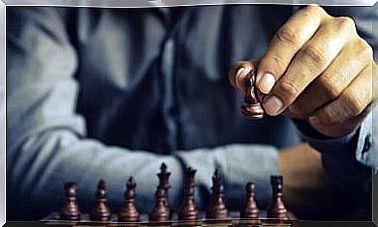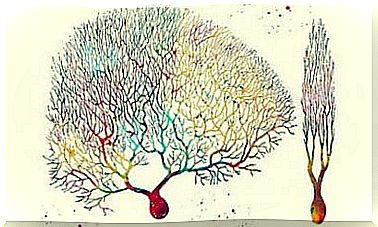8 Keys To Manage Resentment

The resentment is, according to the Dictionary of the Spanish Language (DLE) the ‘ingrained and tenacious resentment’. It is an emotion of negative valence that invades us when someone has hurt us and we attribute that behind there is an intention or a lack of effort to avoid causing such damage. On the other hand, this resentment is what motivates revenge. In this framework, the main reason why learning to manage resentment is not only the harm we can cause to others, but also our own mental well-being.
It is very harmful to recreate the feeling and feed the pain, although it seems attractive to us. What we are actually doing is intoxicating ourselves under the guise of mitigating pain by expressing our emotions.
8 keys to managing resentment
We can use some tips to better manage resentment in a situation that makes us angry, so that we can identify the cause of the problem and analyze it in a way that does not increase the damage. This way we will avoid getting carried away by the situation and by feelings that struggle to gain control of our behavior.

Prevent hatred from being born
To start managing resentment, it is best to analyze the origin of that feeling as objectively as possible. To do this, we can look for a well-founded explanation that counteracts negative valence feelings. For example, we must accept that a personal or professional situation will not always ideally suit our tastes or respond to our interests.
Don’t feed bad thoughts
Thinking about the problem more and more does nothing, except to increase that feeling of internal hatred, which will go against our ability to manage the resentment. Given this, it is best to try to forget the problem, accept that we cannot change what happened and start working on finding solutions.
Value forgiveness
This can be one of the most difficult points, since forgiving is often not an easy task. Therefore, a good option is to stimulate the memory of events or circumstances that motivate this forgiveness, since those that prevent it are usually already present, attracted by the emotion itself.
As an exercise, we can make two columns in which we place the positive and negative aspects of our relationship with the one who has generated the problem, and even give a numerical value to each one. In this way, we can manage the resentment we feel in a more objective way, being able to see the situation with more perspective and assessing both the bad and the good things.
To make conclusions
This step is a good complement to the previous one, so that, once we have analyzed the positive and negative aspects of our relationship with whoever caused the problem, we can draw conclusions about the value of that relationship. This way we can realize whether or not it is worth going a step beyond forgiveness and trying to recover the relationship.
Unburden
When managing a grudge, it is important not to keep the problem to yourself. Talking it with someone can give us another point of view of the situation or give us ideas that we had not thought about.
Don’t act thoughtlessly
Getting carried away by feelings is totally against good management of the situation. For this reason, and as hard as it may be, it is best to wait to analyze the problem in perspective instead of starting a heated discussion.

Selective forgetfulness
Our brain has a survival mechanism that helps us forget what has caused us pain. Of course, this is not a foolproof solution, but it can help us manage our grudges in a healthier way.
If a person has hurt us in any way, it is best not to always be alert in case it happens again, but to try to convince ourselves that it may be an isolated event. Of course, it is also important to know how to recognize the value of people and be aware of whether someone can harm us again in the future.
Turn away
Finally, if we are facing an unsolvable problem or that constantly leads us to a stressful situation, it is best to distance ourselves . This can be good advice for a breakup, so that we avoid situations that can reopen wounds. In the end, space and time will help us to see things more clearly and to put resentment aside.









